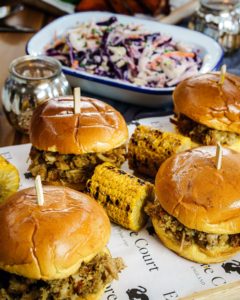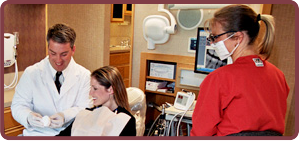 The appearance of your teeth plays an important role in your self-esteem. Not to mention, they can affect someone’s first impression when meeting you. You can boost your confidence and ensure your smile is giving the right impression with porcelain veneers. You won’t have to undergo multiple procedures or a lengthy recovery to achieve the smile of your dreams. After only a couple of appointments, you’ll transform your teeth using a solution that looks and feels natural. While they may look like your real teeth, veneers aren’t as durable as your enamel, so you’ll need to watch what you eat. Here’s how your diet will change with veneers in Superior.
The appearance of your teeth plays an important role in your self-esteem. Not to mention, they can affect someone’s first impression when meeting you. You can boost your confidence and ensure your smile is giving the right impression with porcelain veneers. You won’t have to undergo multiple procedures or a lengthy recovery to achieve the smile of your dreams. After only a couple of appointments, you’ll transform your teeth using a solution that looks and feels natural. While they may look like your real teeth, veneers aren’t as durable as your enamel, so you’ll need to watch what you eat. Here’s how your diet will change with veneers in Superior.
Eating with Porcelain Veneers
A veneer is a thin shell applied to the front side of a tooth to improve its color, size, and shape. When applied to the teeth visible when smiling, veneers resolve several cosmetic flaws simultaneously, like chips, discoloration, and gaps. Although veneers are thinner than ever, they can last for a decade or longer with the right care.
Besides a great oral hygiene routine and regular preventive appointments, your diet can also affect the lifespan of your new smile. Your dentist will recommend making a few adjustments to safeguard your investment, including:
- Avoid Extremely Hard Foods: Hard foods can chip or break your veneers. Over time, your veneers can also become rough around the edges.
- Avoid Sticky Foods: A unique etching process creates a secure bond between your tooth and veneer. However, it’s better to skip sticky foods to prevent a veneer from popping off.
- Limit Dark Liquids and Foods: Veneers are stain-resistant, but your underlying teeth can discolor from dark foods and drinks, which can be visible through the restorations.
- Moderate Alcohol: Alcohol can weaken the bonding material holding your veneers in place.
- Reduce Sugar: Veneers can’t get cavities, but your teeth aren’t immune to decay. Limiting your sugar consumption can reduce your risk.
Although you may need to make a few changes to your diet, the small adjustments will ensure you get the most from your investment.
Maintaining Your Veneers
Choosing the right foods is only one step to preserving your veneers. Your dentist will also recommend a few additional tips to ensure your stunning smile lasts, including:
- Use a soft-bristled toothbrush and nonabrasive toothpaste.
- Brush your teeth for at least 2 minutes twice daily.
- Floss every day.
- Don’t use your teeth to open packages or bottle lids.
- Don’t chew on inedible objects.
Besides caring for your smile at home, visit your dentist every 6 months for a cleaning and checkup. They’ll create a personalized plan to enjoy a radiant smile for many years to come.
About Dr. H. Douglas Clark III
Dr. Clark earned his dental degree from the Marquette University School of Dentistry and furthered his education at the Las Vegas Institute and Spear Education. He has advanced training in many specialties, like cosmetic dentistry. If you’re ready to transform your smile, contact our office today to see if veneers are right for you.









